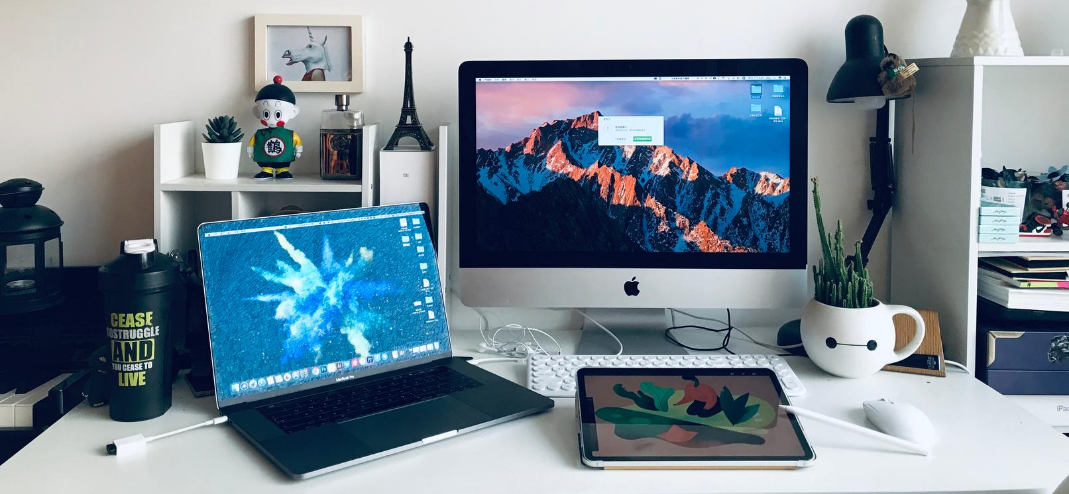Blog
Looking after your Mental Health when Working from Home

Our working lives have been changing for a while now – but the emergence of coronavirus pandemic has led to a massive change, more uncertainty, and new challenges for many of us, including working from home.
The Impact of Working from Home
A recent study from Nuffield Health found that over a third (36%) of those surveyed said that not being in the same working space as colleagues has left them feeling unable to take a break or step away from their workstations, with many feeling they must always be ready to respond quickly from their computers. There are concerns that this may be contributing to higher levels of anxiety, stress and loneliness that many have reported feeling over the past few months.
Working from home, it seems, can be a burden to some, but there are steps you can take to optimise this time of flexibility and maintain your mental wellbeing whilst working from home
Set a Structure to your Day
- Designate a place to work that is as free of distractions as you can make it. Avoid using your bedroom as a place of work. It can impact your ability to switch off when going to bed.
- Set a routine. Get up and get started at the same time each day. Take regular breaks including a lunch break of at least 30 minutes, and finish working and turn off at an appropriate time each day.
- No matter how tempting, avoid working in your pyjamas. Getting dressed helps you to focus and get into a working mindset. This in turn allows your mind to wind down when you change into comfortable clothes or pyjamas each night.
- Try and set clear tasks for the day – three major decisions or activities is a good day’s work – but keep an eye on ongoing tasks too.
- Have a proper lunch break. Eat away from your work area. Try and get outside and get some natural light if you can do so, and try some exercise.
- Use your diary to clearly say to others when you are working and when you are available to speak.
- When you are done for the day, pack away your work things or leave your work area at the end of the day.
Keep up the formal and social flow of work
It’s really important that structured and unstructured connections with work and colleagues carry on whilst people are working remotely or flexibly:
- If you are a manager, discuss with your teams how you’d like to run supervision, check-ins, and sign offs remotely. Let people know how and when to contact you.
- Try to use video for all formal discussions, and any discussions where you are checking in on someone’s well-being – the non-verbal communication is key for this.
- Follow-up video chats or calls with a quick note with a summary of the actions to take, or your understanding of the major points to ensure that things are clear.
- Use video calling software for informal chats or virtual coffee catch-ups for example.
- If a new starter joins your team during this period, have a video conference induction with them. Acknowledge they’re not starting under ideal circumstances and this might cause additional stress on top of the common stress of wanting to demonstrate their skills and fit for the new job.
- Consider having break or lunch buddies to encourage you to take a break or a lunch break – or check in with your team at the end of the day to update on what you’ve done – work and otherwise that day.
- Try and keep a separation between work and personal – think for example before connecting with colleagues you wouldn’t ordinarily link with on things like Facebook and respect the boundaries people have between work and home life.
Use the support that’s available
This is a challenging time for all of us – and whether we are at work or not many employers provide support.
- Many employers offer employee assistance programmes, and wider benefits. Use these wherever you need to – many have dedicated apps and websites and they aren’t just about counselling.
- If you have ongoing health or mental health conditions, even if they aren’t disclosed, your employer has a duty to make reasonable adjustments. In this case this could include home working, additional support from managers, or equipment.
- It’s quite likely that we will need to accept a certain amount of distress and anxiety relating to the outbreak, in the short and medium term. If you have self-care techniques that work for you, try and make sure that you have what you need. You may need to think differently – for example doing exercise workouts from videos instead of attending classes. You may want to consider looking at mindfulness practice or finding ways to help others in your community.
Click here to read our blog post on maintaining productivity whilst working from home
« Back to All Posts
